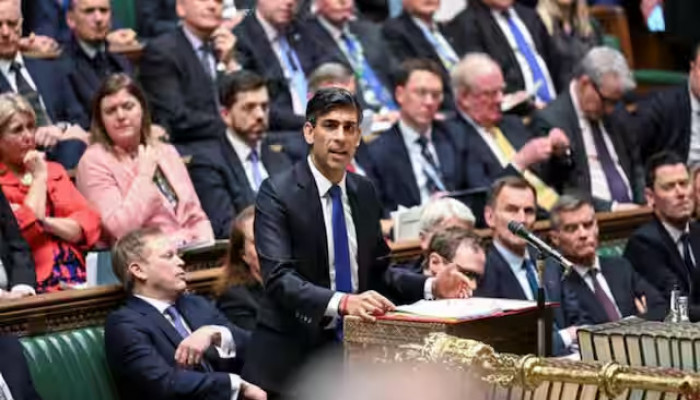Rishi Sunak apologises over infected blood scandal, calls it a 'day of shame'
- In Reports
- 12:24 PM, May 21, 2024
- Myind Staff
On Monday, British Prime Minister Rishi Sunak issued an unequivocal apology to thousands of citizens who were once infected by contaminated blood in a decades-long scandal that had been covered up.
The Prime Minister told the House of Commons, “This is a day of shame for the British state.
“Today’s report shows a decades-long moral failure at the heart of our national life – from the National Health Service to the Civil Service, to ministers in successive governments, at every level, the people and institutions in which we place our trust failed in the most harrowing and devastating way.
“They failed the victims and their families and they failed this country.”
“This is an apology from the state – to every single person impacted by this scandal. It did not have to be this way; it should never have been this way. And on behalf of this and every government stretching back to the 1970s, I am truly sorry," he added.
More than 30,000 people in the United Kingdom were infected with viruses such as hepatitis and HIV after being transfused with tainted blood between the 1970s and early 1990s, according to the Infected Blood Inquiry.
The victims of the blood scandal were people who needed blood transfusions during surgeries or after accidents, as well as those with blood disorders like haemophilia who were treated with donated blood plasma products.
The final report of a five-year inquiry into the scandal, which has so far claimed more than 3,000 lives, concluded that the health service and governments engaged in a “chilling” cover-up. They “closed ranks” to conceal the truth, even destroying documents to keep patients uninformed.
Sir Brian Langstaff, the inquiry chairman, stated that the “horrifying” scandal could and should have been avoided, but a “catalogue of failures” led to this “calamity”.
According to the report, blood donors were not properly screened, and officials imported blood products from abroad, including the United States, where they sourced donations from drug users and prisoners.
The report stated that too many transfusions which were not necessarily needed also took place.
In his 2,527-page report, Sir Brian also warned that a substantial number of people remained unaware that they were given transfusions or other products of infected blood, and were therefore undiagnosed.
They include around 900 people infected with hepatitis C and around 200 people who were infected with HIV, the virus that causes Aids, as children.
One of the most shocking episodes in the scandal occurred at Lord Mayor Treloar School for children with disabilities in Alton, Hampshire, where a significant number of the pupils were haemophiliacs.
Children there were “betrayed” when they were used as “objects” of experimental trials, and were not always told they were part of a trial, then suffered a “nightmare of tragic proportion” after being given disease-ridden drugs.
Young boys at the school were informed in groups of five whether they had tested positive or negative for HIV, in front of each other, before being promptly sent back to class.
In some cases, doctors made the "unconscionable" choice not to disclose to pupils and their parents that they had tested positive for the virus at all.
Attempts were also made to conceal the scandal which also included evidence that the health department's officials destroyed documents in 1993.
Sir Brian's recommendations include extending the statutory duty of candour, currently applicable to doctors, to encompass NHS managers, executives, and board members. Additionally, he stressed the necessity of ending the "culture of defensiveness" within the NHS.
He also suggested that the Government should fund a memorial for the victims and another memorial at Treloar’s School.
The government has made interim payouts of £100,000 each to about 4,000 survivors and bereaved partners.
Image source: Reuters







Comments